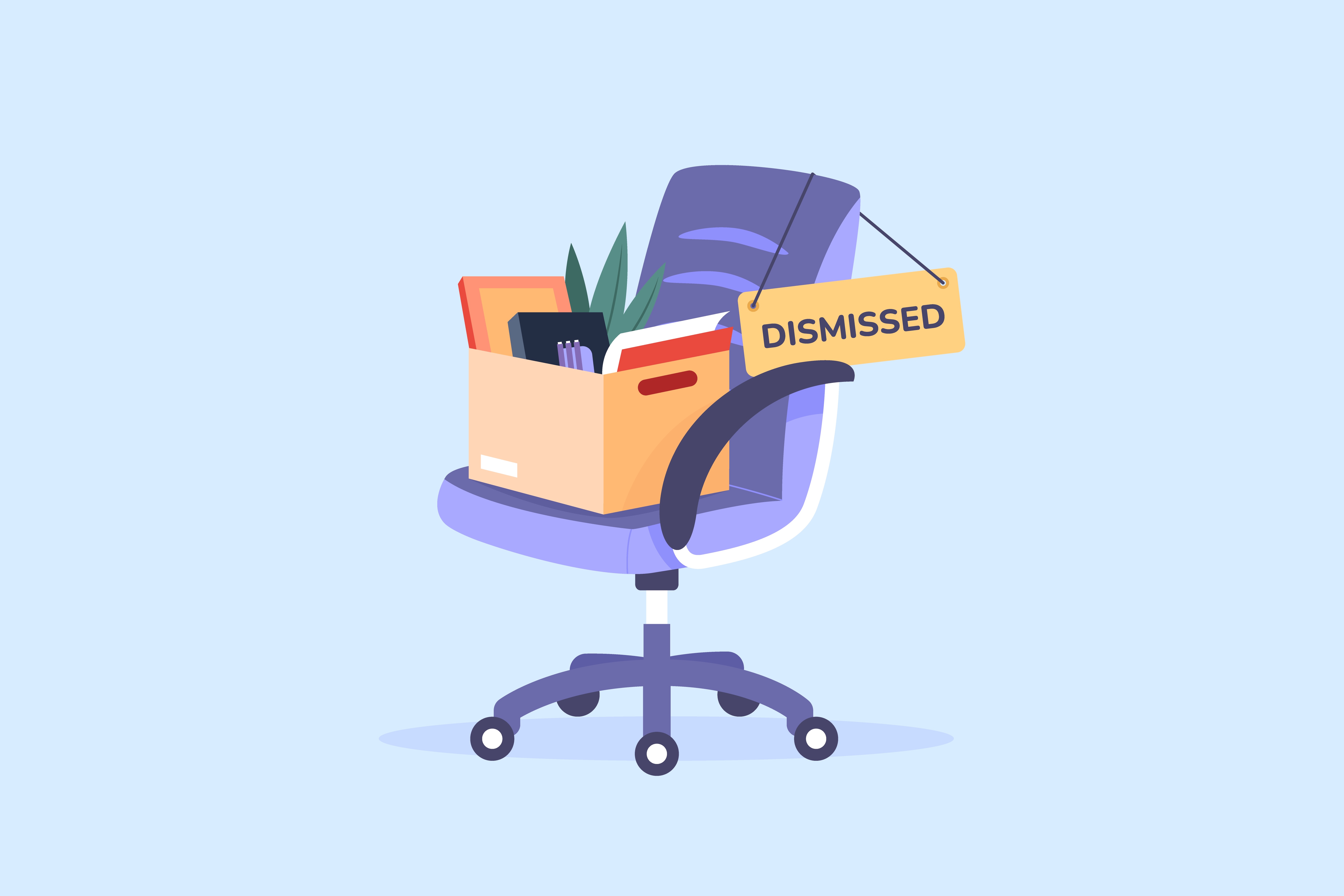How to prepare your finances for a potential layoff
5 smart money tips for uncertain economic times


A free daily email with the biggest news stories of the day – and the best features from TheWeek.com
You are now subscribed
Your newsletter sign-up was successful
As tech giants continue to cut jobs, now may be a good time for workers across all industries to put a strategy in place to prepare their finances just in case a layoff is looming.
While high-profile layoffs at companies like Google, Microsoft, and Amazon are making headlines, it's not just the tech industry that's culling employees. More than 17 million workers were laid off or fired last year, Vox explained. Walmart "has been laying off hundreds at e-commerce facilities nationwide," according to Retail Dive, and the company plans to rely more on robots at distribution centers. Middle managers might be next to face the chopping block, Bloomberg reported. "Middle managers everywhere are under increasing pressure from both above — receiving missives from their bosses to do more with less — and below — enforcing return-to-office policies and navigating new hybrid work arrangements."
Here are some tips on how to prepare financially for the unknown.
The Week
Escape your echo chamber. Get the facts behind the news, plus analysis from multiple perspectives.

Sign up for The Week's Free Newsletters
From our morning news briefing to a weekly Good News Newsletter, get the best of The Week delivered directly to your inbox.
From our morning news briefing to a weekly Good News Newsletter, get the best of The Week delivered directly to your inbox.
Stay calm
The first and most important step in preparing for a potential layoff is to keep your cool. Yes, losing a main source of income can be extremely stressful and devastating, but the sooner you can understand that the situation is out of your control, the sooner you can move past it. You should "set up a schedule for yourself so you don't feel adrift during the day, stay busy applying for jobs and networking, and take some time out to remind yourself that as long as you are looking for work, something will come along," Investopedia suggested. Keep sharpening your skills so you are not out of touch with your market if something changes.
Seek a professional financial advisor
Whether you have accumulated debt or are behind on bills, it's never too late to seek professional assistance. Contacting your bank and setting up an appointment with a financial advisor could certainly help with getting you on the right track. It can be beneficial to work with an advisor that can create a personalized plan for you. Yahoo suggested "opening an account with a robo-advisor or online brokerage, perhaps one that allows people to open accounts with low minimums." Most advisors will look into your spending habits, as well as the funds that are coming in.
A free daily email with the biggest news stories of the day – and the best features from TheWeek.com
Curtail your spending
Cutting unnecessary spending on things like meals out, shopping splurges, and excessive travel could save you money in the long run. After all, those things will still be there once your situation becomes more stable. "The average American spends almost $60 a week on 'away from home' food," Yahoo Finance said, citing the U.S. Bureau of Labor Statistics. "By making food at home rather than going out or ordering in, you could save a significant chunk of change that could be spent on other necessities." Garrett Oakley, a certified financial planner at Betterment, told CNBC a good way to identify if you can afford to splurge on an item "is to not let a single purchase exceed more than 5% of your net worth."
You might also consider automatic payment systems, or payments that are "automatically sent to one of your billers from your bank account or credit card account," Forbes Advisor explained. This method can help you stay on top of your bills so you "avoid costly late fees and penalties," the financial site continued. It could also make it easier to "manage your budget and spending, since you know exactly when money is coming out of your account."
Create monthly budgeting goals
Knowing how to earmark your money and set healthy spending limits can make or break your financial success — layoff or no layoff. Consider using a "50/30/20 budget" as a way to "divide your income among needs, wants, savings and debt repayment," Nerdwallet said. The goal is to have "a plan for every dollar you have," the site continued.
Set up a debt repayment plan
Getting your debt paid down can be tedious, but it's essential. "If you experience a loss of income, you might have to forego paying one or more of these bills," said Equifax. This could affect your credit scores, "so it's important to understand which bills you need to pay." Prioritize paying for the roof over your head "on time and in full," the site said. Pay at least the minimum payment on your credit cards. Keep up with medical debts "after other debts are met first." And if you fall behind, you can contact your creditors and ask for a hardship concession. "This might include making interest-only payments on your debt or putting payments into forbearance," Equifax added.
Kelsee Majette has worked as a social media editor at The Week since 2022. In 2019, she got her start in local television as a digital producer and fill-in weather reporter at NTV News. Kelsee also co-produced a lifestyle talk show while working in Nebraska and later transitioned to 13News Now as a digital content producer.
-
 Palantir's growing influence in the British state
Palantir's growing influence in the British stateThe Explainer Despite winning a £240m MoD contract, the tech company’s links to Peter Mandelson and the UK’s over-reliance on US tech have caused widespread concern
-
 Quiz of The Week: 7 – 13 February
Quiz of The Week: 7 – 13 FebruaryQuiz Have you been paying attention to The Week’s news?
-
 Nordic combined: the Winter Olympics sport that bars women
Nordic combined: the Winter Olympics sport that bars womenIn The Spotlight Female athletes excluded from participation in demanding double-discipline events at Milano-Cortina
-
 How your household budget could look in 2026
How your household budget could look in 2026The Explainer The government is trying to balance the nation’s books but energy bills and the cost of food could impact your finances
-
 What is a bubble? Understanding the financial term.
What is a bubble? Understanding the financial term.the explainer An AI bubble burst could be looming
-
 The FIRE movement catches on as people want to retire early
The FIRE movement catches on as people want to retire earlyIn the spotlight Many are taking steps to leave the workforce sooner than usual
-
 Who wants to be a millionaire? The dark side of lottery wins
Who wants to be a millionaire? The dark side of lottery winsIn The Spotlight Is hitting the jackpot a dream come true or actually a nightmare?
-
 How can you find a financial adviser you trust?
How can you find a financial adviser you trust?the explainer Four ways to detect professionals who will act in your best interest
-
 What should you consider when choosing a financial adviser?
What should you consider when choosing a financial adviser?The Explainer The right person can be a big help with financial planning, investing, taxes and more
-
 What Biden's IRA means for EV tax credits: 2024 updates
What Biden's IRA means for EV tax credits: 2024 updatesThe Explainer Which cars are eligible and how much money can owners save?
-
 How to ensure you don't outlive your retirement savings
How to ensure you don't outlive your retirement savingsThe Explainer Your golden years should be enjoyed. Don't let finances get in the way.
